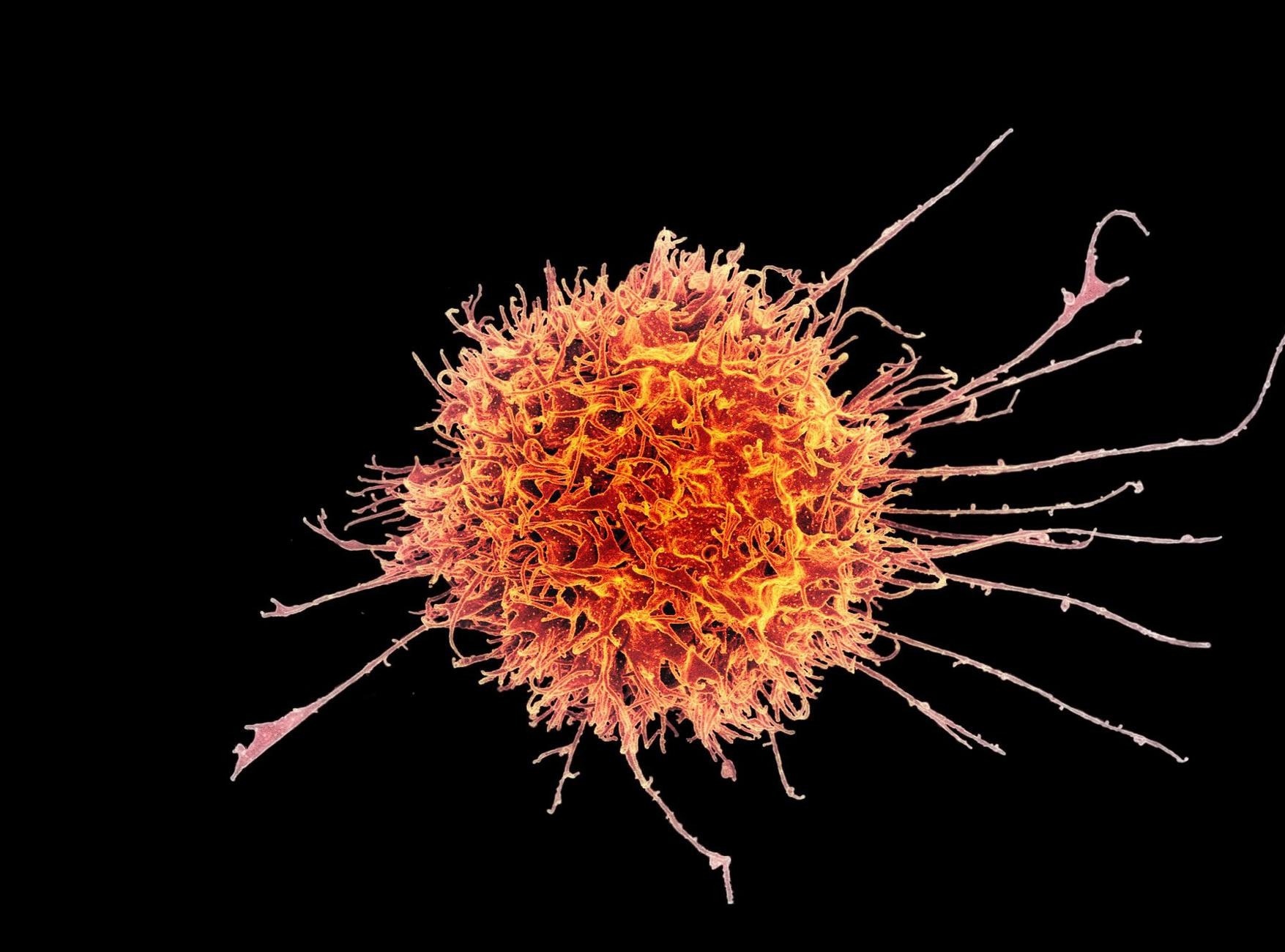According to new research, certain immune cells in human bodies experience a reduction in their "killer instinct" after entering solid tumors.
 Colorized scanning electron micrograph of a natural killer cell from a human donor. Image Credit: National Institutes of Allergy and Infectious Diseases, National Institutes of Health
Colorized scanning electron micrograph of a natural killer cell from a human donor. Image Credit: National Institutes of Allergy and Infectious Diseases, National Institutes of Health
Researchers from the Universities of Birmingham and Cambridge have discovered how immune cells known as natural killer cells (NK cells) quickly lose their ability to function when they enter and remain inside tumors. Their findings were published in Nature Communications.
The researchers demonstrated that when NK cells enter solid tumors, they go into a latent condition by ceasing to produce important effector mechanisms such as granzymes, cytokines, and chemokines that stimulate immune responses. They did this by using tumor cells cultivated from mouse models. Additional research using human colon cancer cells verified that people also experience a decrease in natural killer cell activity.
The researchers also investigated the possibility of reversing the NK cells' initial loss of activity when entering tumor settings. In mice models, targeting the IL-15 pathway improved tumor management and led to a large increase in NK cell activity. This approach is currently being tested on humans.
Natural killer cells are an exciting prospective field in the world of cancer treatment, using the body’s own immune system in the fight against cancer growth. Up until now though, we have seen that NK cells have the innate capacity to slow cancers but often seem to lie dormant within tumor cells. Using a mice model, we have been able to specifically see what happens to Natural killer cells after entering solid tumor environments which seemingly blunts their killer instinct.”
David Withers, Study Co-Lead Author and Professor, Department of Immune Regulation, University of Birmingham
David Withers said, “Crucially, the team also found that treating with Interleukin-15 could re-awaken the dormant killer instinct in the NK cells. This is a hugely exciting discovery that allays some of the fears we may have about how natural killer cells behave in tumor environments, and could pave the way for new types of treatment to add to the arsenal to tackle solid tumor cancers.”
Immune Orchestrators Stuck in Cancers Become “Exhausted”
Professors David Withers and Menna Clatworthy's research team discovered in a closely linked study that was also published in Nature Communications that some immune cells called dendritic cells (DCs), which are essential for coordinating the anti-tumor immune response, become trapped inside tumors.
DCs typically collect material from cancer cells and transport it to lymph nodes, where it triggers the immune system's anti-tumor reaction.
The researchers found that some DCs linger in the tumor instead of moving on to lymph nodes, where they get "exhausted" and lose their capacity to trigger anti-tumor immune responses. They also upregulate cues that may potentially inhibit the activity of anti-tumor immune cells.
Understanding the reason for these cells' entrapment and devising a solution to restore their regular DC behavior could enhance anti-tumor responses.
“We found that exhausted dendritic cells stuck in the tumor were located next to a type of tumor killer immune cell, CD8 T cells, potentially preventing them from doing their job. Remarkably, these dysfunctional tumor DCs could be revived using a cancer immunotherapy that is used in the clinic. Our work helps develop our understanding of how cancers can disrupt the immune system, and crucially, how we can rescue this to improve anti-cancer immune responses.”
Menna Clatworthy, Study’s Co-Lead Author and Professor of Translational Immunology, University of Cambridge
Source:
Journal reference:
Dean, I., et al., (2024). Rapid functional impairment of natural killer cells following tumor entry limits anti-tumor immunity. Nature Communications. doi.org/10.1038/s41467-024-44789-z